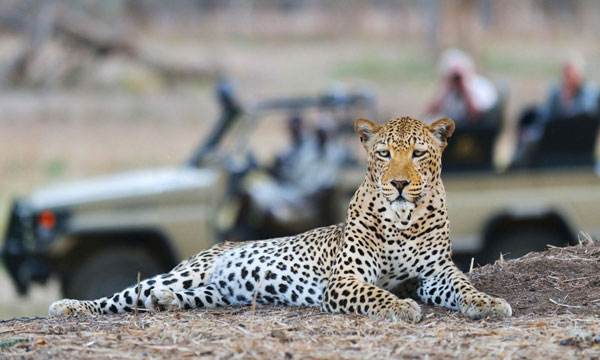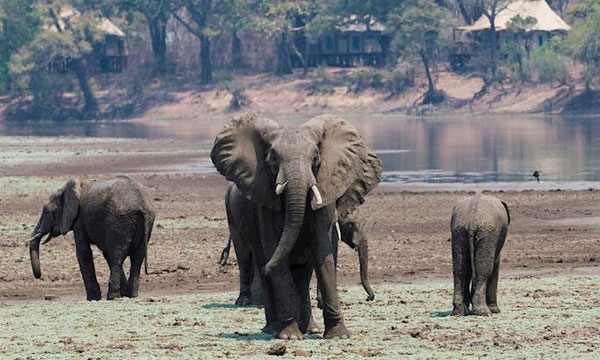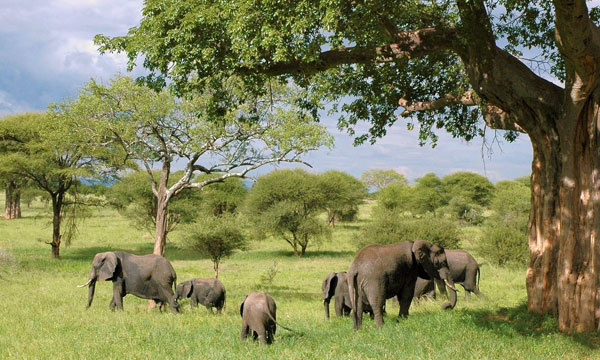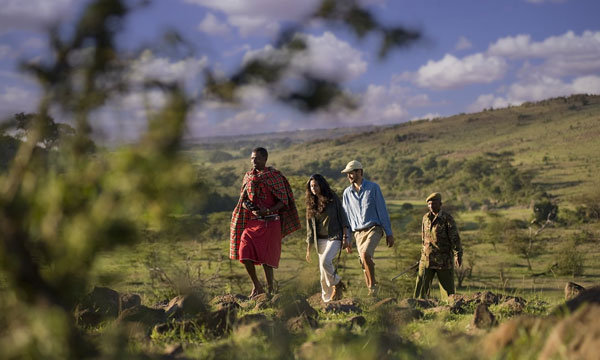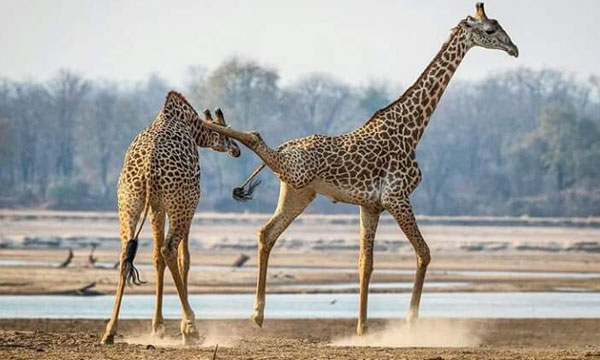Call Us
8:00am - 17:00PM
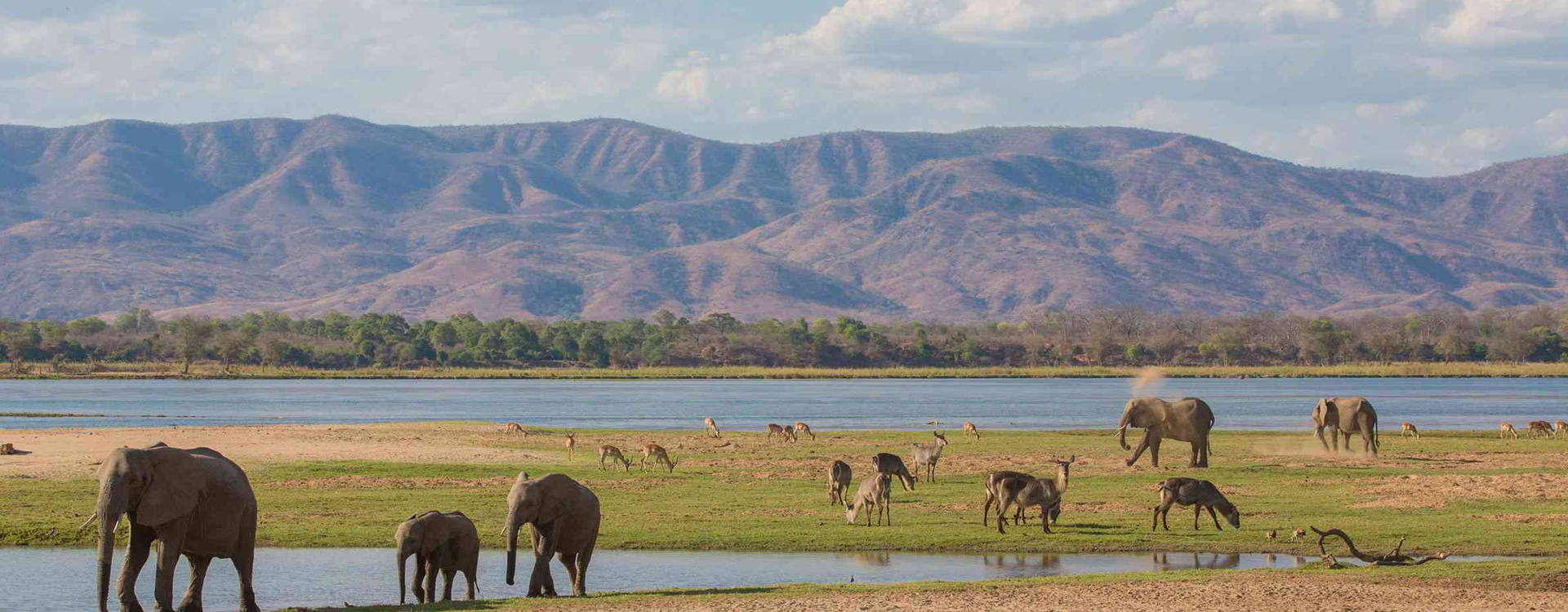
Lusaka
About lusaka
Lusaka City the capital and largest city of Zambia is located in the southern part of the country. It is the cultural center of Zambia and serves as a hub for transportation and communication throughout the region.
With a population of over 2 million people, Lusaka City is the most populous city in Zambia and one of the fastest-growing cities in Africa.
It is known for its diverse culture, lively street markets, and historical landmarks, making it a popular destination for both tourists and locals a lik.
Add Lusaka Safari to your Zambia Safari & get the best attractions today!
Lusaka Tours and Safaris
We Think You’ll Love
Best time to visit
The Best Time To Visit Lusaka falls in the delightful window of May to June. This period promises gentle weather, perfect for wandering through Lusaka's lively streets and getting to know its rich heritage. As the rains have stopped, the city shows its best, allowing visitors to fully enjoy its dynamic culture and outdoor adventures. While October offers warmth and longer days, the sweet spot for comfort and exploration distinctly lies within these early months of the year.
Wildlife
Lusaka, Zambia's vibrant capital, is not just an urban hub but also a gateway to fascinating Zambia Wildlife adventures. Close to the city, Lusaka National Park and other reserves like Kalimba Reptile Park offer encounters with elephants, giraffes, and more. This proximity allows for easy exploration of Zambia's diverse ecosystems, from game drives to birdwatching, highlighting Lusaka's unique blend of city life and natural beauty.
What To Experience
We think you will love
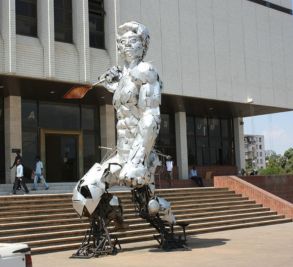
lusaka national museum
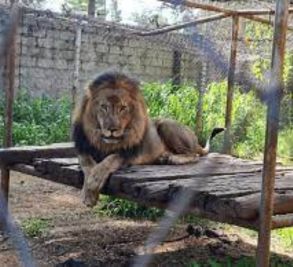
Munda Wanga Park
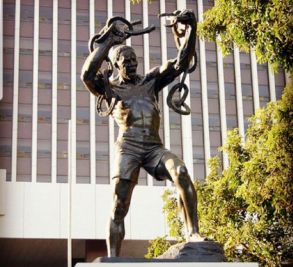
Lusaka Freedom statue
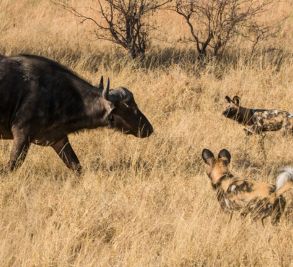
Lusaka National Park
TRAVEL GUIDE FOR Lusaka
We Think You’ll Love
History of Lusaka
Lusaka was originally settled by the Lenje people, who were later conquered by the Ngoni people in the early 19th century. In the late 19th century, European explorers and traders began to arrive in the area, and in 1905, Lusaka became the capital of what was then known as Northern Rhodesia.
During the colonial period, Lusaka grew rapidly, with many Europeans and South Asians settling in the city to work in the copper mines and other industries. In the 1940s and 1950s, Lusaka became a center of anti-colonial activism and nationalist politics, with the formation of the African National Congress and other organizations pushing for independence from British rule.
After Zambia gained independence in 1964, Lusaka continued to play a major role in the country's development. The city became the center of government, commerce, and culture, with new buildings and infrastructure constructed to support the growing population.
Today, Lusaka is a bustling metropolis that reflects the history and culture of Zambia. It remains the political and economic center of the country, with a diverse population that includes people from all over Zambia and the world.
Visitors to Lusaka can explore the city's museums, markets, and historic sites to learn about its past and present, and experience the unique blend of African and European influences that make Lusaka such a fascinating destination.
Map of Lusaka
The Lusaka Map represented below gives all the details of the various gates of the park. Besides that, the location of all its lodges is also shown.
.jpg)
Getting into Lusaka City
By Air:
The easiest way to reach Lusaka is by air, and the Kenneth Kaunda International Airport is the main airport in Zambia. Many international airlines operate flights to Lusaka, including Emirates, South African Airways, Ethiopian Airlines, and British Airways, among others.
By Land:
If you are traveling to Lusaka from neighboring countries, you can reach the city by road. There are bus services and private taxis available that connect Lusaka with neighboring countries such as Zimbabwe, Malawi, and Tanzania, among others.
By Rail:
Zambia has a railway system that connects it with neighboring countries, but the railway network is not very extensive. If you are planning to travel to Lusaka by train, you can take the TAZARA railway line that connects Tanzania with Zambia. The train journey can take up to two days, but it's a scenic and comfortable way to travel.
It's important to note that tourists should check the latest travel restrictions and entry requirements before planning their Zambia Safaris>.
Wildlife around Lusaka
While Lusaka is primarily known as a business and administrative hub, there are a few wildlife areas in and around the city that you can explore. Here are a few Zambia Wildlife options:
- Munda Wanga Environmental Park:
This park is located on the outskirts of Lusaka and features a zoo with a variety of animals, including zebras, giraffes, monkeys, and crocodiles. There is also a botanical garden, picnic areas, and a playground.
- Lilayi Lodge:
This private game reserve is located about 20 km outside of Lusaka and offers game drives and walking safaris. Visitors can see a variety of animals, including elephants, zebras, antelopes, and more.
- Lower Zambezi National Park:
While not in Lusaka itself, this national park is located about three hours away by car and is a popular destination for wildlife viewing. Visitors can go on game drives, boat safaris, and walking safaris to see animals such as lions, leopards, elephants, and hippos.
- Blue Lagoon National Park:
Another national park located about two hours from Lusaka, Blue Lagoon offers a range of activities such as bird watching, game drives, and walking safaris. Visitors can see animals such as zebras, buffalos, and antelopes.
Lusaka Food
During your Travel to Lusaka , visitors can taste mouth-watering foods that reflect the country’s rich history blending local flavours and international influences.
- Zambia's national dish, nshima, is a staple food in Lusaka. It is made from maize flour and served with a variety of relishes such as vegetables, meat, and fish. Other popular local dishes include kapenta, a small fish often served with nshima, and ifisashi, a vegetable stew made with groundnuts.
- Lusaka also offers a range of international cuisine, from Indian and Chinese to Italian and Lebanese. Food markets, such as Soweto Market and Kabwata Cultural Village, offer an authentic experience of local street food and produce.
Whether you're looking to explore traditional Zambian cuisine or indulge in international flavors, Lusaka's food scene has something to offer for every palate.
Culture and Tradition
Lusaka's culture and tradition reflect the diverse ethnic groups and historical influences that have shaped Zambia over the years. Visitors on Lusaka City Tour can experience the city's unique blend of tradition and modernity through its music, crafts, cuisine, and festivals, as well as by interacting with the friendly and welcoming people who call Lusaka home.
Language:
There are over 70 languages spoken in Zambia, with English serving as the official language. In Lusaka, Bemba and Nyanja are widely spoken.
Music and Dance:
Traditional Zambian music is characterized by drums, percussion instruments, and singing, often accompanied by dance. In Lusaka, visitors can enjoy traditional performances of music and dance, as well as contemporary genres like hip hop and reggae.
Crafts:
Lusaka has a thriving artisan community that produces a wide range of crafts, including pottery, textiles, and beadwork. Visitors can explore the markets and shops in Lusaka to find unique and locally made souvenirs.
Cuisine:
Traditional Zambian cuisine is based on a staple of maize meal, often served with stews and relishes made from meats, vegetables, and peanuts. In Lusaka, visitors can try a variety of traditional dishes, as well as international cuisine from around the world.
Festivals:
Lusaka hosts a number of festivals and cultural events throughout the year, such as the Zambia International Trade Fair and the Lusaka July horse race. Visitors can attend these events to experience the local culture and traditions.
Customs and beliefs:
Zambian culture places a strong emphasis on respect for elders, hospitality, and community. Visitors to Lusaka can observe and learn about local customs and beliefs by engaging with the people, attending cultural events, and visiting traditional villages and shrines.
Things to Do in Lusaka City
Lusaka offers a range of activities, including exploring local markets, visiting museums and art galleries, trying local cuisine, enjoying nature walks, and experiencing the vibrant nightlife.
Other attractions include the Lusaka National Park, the Kabwata Cultural Village, and the Chaminuka Game Reserve.
Visit the National Museum:
The National Museum of Zambia is located in Lusaka and offers visitors a chance to learn about the history, culture, and natural heritage of the country. The museum has exhibits on archaeology, ethnography, and art, as well as a collection of live snakes and other reptiles.
Shop at the markets:
Lusaka has several markets that are worth a visit, including the bustling Soweto Market and the more upscale East Park Mall. You can find a wide range of goods, from traditional crafts and textiles to modern clothing and electronics.
Explore the parks:
Lusaka has several parks and green spaces that are perfect for a leisurely stroll or a picnic. Some popular parks include the Lusaka City Park, the Munda Wanga Environmental Park, and the Botanical Gardens.
Visit the Cathedral of the Holy Cross: This Catholic cathedral is one of the largest in Africa and is a beautiful example of modern architecture. Visitors can attend mass or simply admire the building's impressive stained-glass windows and intricate mosaics.
Try the local cuisine:
Lusaka has a vibrant food scene, with a mix of traditional Zambian dishes and international cuisine. Some must-try local dishes include nshima (a maize porridge), bream fish, and ifisashi (a stew made with groundnuts and vegetables).
Attend a festival:
Lusaka hosts several festivals throughout the year, including the Lusaka July Horse Race, the Zambia International Trade Fair, and the Lusaka Agricultural and Commercial Show. These events offer a chance to experience the local culture and traditions.
Visit nearby wildlife areas:
As mentioned earlier, Lusaka is located close to several national parks and game reserves where visitors can go on safaris and see a variety of wildlife. Some popular destinations include Lower Zambezi National Park, Lilayi Lodge, and Blue Lagoon National Park.
These are just a few examples of the many things to do in Lusaka. Whether you're interested in history, culture, nature, or food, there is something for everyone in this vibrant city.
These will be added on the Things To Do In Zambia
Day Trips from Lusaka
Here are some possible day trips that visitors can take from Lusaka.
Kafue National Park:
Kafue National Park is one of the largest national parks in Africa, covering an area of about 22,400 square kilometres. It is located about 3 hour drive from Lusaka and is known for its diverse wildlife, including elephants, lions, cheetahs, and various antelope species. Visitors can take a game drive, go on a walking safari or bird watching, or take a boat trip along the Kafue River.
Chaminuka Game Reserve:
The Chaminuka Game Reserve is located about 45 minutes' drive from Lusaka and is a private game reserve that offers a wide range of activities, including game drives, horseback riding, and guided walks. The reserve is home to a variety of wildlife, including zebras, giraffes, wildebeest, and many bird species. Visitors can also take a tour of the Chaminuka Art Museum, which features a collection of traditional Zambian art and artifacts.
Lusaka National Park:
Located just a short drive from Lusaka, Lusaka National Park is a great option for a day trip. The park covers an area of about 50 square kilometers and is home to a variety of wildlife, including zebras, giraffes, wildebeest, and various antelope species.
Visitors can take a game drive, guided walk, or bird watching tour to explore the park and its inhabitants. Lusaka National Park is a great option for visitors who want to experience a national park without traveling too far from the city.
Accommodation In Lusaka
Lusaka offers a variety of accommodation options in all three ranges, budget, mid-range and luxury accommodation.
In the Budget category, travellers have options to choose a guesthouse located throughout the city.
In the Mid-range category, options vary from hotels to high-end guesthouses. And in the luxury category, you can choose five-star hotels and lodges coupled with high-end room services and delicious food.
Attractions not to miss in Lusaka
From Lusaka National Museum to the Freedom statue, Lusaka has a lot of places to discover. No matter whether you love shopping or just want to know about the history and culture, every day there is something new to discover.
Lusaka National Museum
Visitors to the museum can learn about the rich heritage of the Zambian people and gain a better understanding of the country's past and present. It's a great place to visit for anyone interested in African history and culture.
This National Museum has a collection of historical documents, photographs, and memorabilia that depict the country's journey towards independence. And also, this museum is dedicated to preserving and promoting Zambian culture and history.
Wildlife Discovery Centre
Set up by Game Rangers International (GRI), the Wildlife Discovery Centre, provides free conservation education to over 5000 children every year. This is where visitors can learn about the conservation efforts.
Further it showcases, Zambia’s natural wealth.
Lusaka City Market
Lusaka City Market is one of the largest markets, located in the heart of Lusaka. The market is a hub of activity, with vendors selling a wide variety of goods, including fresh produce, spices, clothing, electronics, and handicrafts. Visitors to the market can enjoy the vibrant atmosphere and explore the stalls to find unique souvenirs or sample some of the local cuisine.
It's a great place to experience the energy and diversity of Lusaka and to interact with locals.
Munda Wanga Environmental Park
Munda Wanga Environmental Park is an eco-tourism destination located in Lusaka, Zambia. The park features a wildlife sanctuary, botanical gardens, and a zoo with a variety of rescued animals.
It's an ideal destination for nature lovers and visitors interested in learning about conservation efforts in Zambia.
Freedom Statue
Located near to the Lusaka National Park, the Freedom Statue is dedicated to freedom fighters who lost their lives in the Zambia’s Independences. It depicts a man breaking free from chains and holding a child, symbolizing Zambia's liberation and the hope for a better future for its people.
The statue stands at 25 meters tall and is made of bronze. It has become a symbol of Zambian nationalism and a popular tourist attraction in Lusaka.
Presidential Burial Site National Market
The Presidential Burial Site National Monument is located in Lusaka, Zambia, and is a significant historical site in the country. It is the final resting place of several Zambian presidents, including Kenneth Kaunda, who served as the country's first president.
The monument features a large statue of Kenneth Kaunda, as well as a museum with exhibits on the history of the country's presidents and their contributions to Zambia.
Lusaka National Park
Teeming with diverse wildlife, the Lusaka National Park is just 15 mins drive away from the capital city. This park accords diverse wildlife, like eland, zebra, giraffe and wildebeest and many others.
Quick Fact – Lusaka National Park is established in 2011, and in 2015 it was officially opened for visitors.
Highlights of Lusaka
Being home to more than 2 million people, Lusaka offers a mix of culture and nature. Here in the city, visitors can experience both nature and wildlife.
- Lusaka is the capital and largest city of Zambia, located in the southern part of the country.
- The city is a bustling hub of activity, with a mix of modern and traditional African culture.
- Visitors can explore Lusaka's markets, such as the colorful Soweto Market, for a taste of local life and to purchase crafts, souvenirs, and fresh produce.
- Lusaka boasts several museums, including the Zambia National Museum, which showcases the country's history, culture, and art.
- Visitors can also check out the Lusaka National Park, located just outside the city, to see wildlife such as zebras, giraffes, and antelopes.
- Lusaka has a vibrant nightlife scene, with bars and clubs catering to all tastes, including live music and dancing.
- For a taste of Zambian cuisine, visitors can try local dishes such as nshima (a maize-based porridge) and bream fish, or sample international cuisine at one of Lusaka's many restaurants.
- The city is also home to several parks and green spaces, such as the Munda Wanga Environmental Park, where visitors can see rescued animals and enjoy nature trails.
- Lusaka is a great base for exploring the surrounding areas, with day trips available to destinations such as the Kafue National Park and the Chaminuka Game Reserve.
Overall, Lusaka offers visitors a mix of cultural, historical, and natural attractions, making it a great destination to experience the heart of Zambia.
Travel Tips for Lusaka
If you're planning a Lusaka City Tour, here are some travel tips that you need to keep in mind.
- Visa requirements:
Check the visa requirements for Zambia before you travel. Some nationalities may require a visa to enter the country. You can find the latest visa information on the official government website. For more detailed information visit –
https://www.zambiaimmigration.gov.zm/for-visitors/visa-requirements-by-purpose-of-visit/
- Vaccinations:
Make sure you are up to date on your vaccinations before traveling to Zambia. Check with your doctor or travel clinic to see if you need any additional vaccines. If you are coming from US, you can visit the official site of CDC.
https://wwwnc.cdc.gov/travel/destinations/traveler/none/zambia
- Currency:
The currency in Zambia is the Zambian kwacha. Make sure to exchange your money before you arrive in Lusaka. You can exchange currency at the airport, banks, or authorized exchange bureaus.
- Transportation:
Lusaka has a variety of transportation options, including taxis, buses, and minibuses. Taxis are the most convenient and safest option, but make sure to negotiate the price before you get in.
- Safety:
Lusaka is generally safe for tourists, but it's important to take precautions. Avoid carrying large sums of cash or wearing expensive jewelry. Stick to well-lit and busy areas, especially at night.
- Weather:
Lusaka has a tropical climate, with hot and rainy summers and cool and dry winters. Be prepared for both hot and rainy weather, especially if you're visiting during the summer months.
- Power supply:
Zambia has a 230V power supply, with a Type C or Type D power outlet. Make sure to bring a universal adapter if you plan on using electronic devices.
- Language:
The official language in Zambia is English, but many people also speak local languages like Bemba and Nyanja. It's a good idea to learn some basic phrases before you arrive.
- Dress code:
Zambia is a conservative country, and it's important to dress appropriately. Avoid wearing revealing clothing or shorts and tank tops in public places.
- Food and water:
Stick to bottled water and avoid tap water, as it may not be safe to drink. Be careful when eating street food and make sure it's cooked thoroughly before eating.
Final Thought
Lusaka is a vibrant and dynamic city that offers visitors a unique blend of African and European culture, as well as a rich history and natural beauty. From its bustling markets and lively music scene, to its museums and historic sites, there is something for everyone in Lusaka.
Whether you're a history buff, nature lover, or simply looking for a lively and welcoming destination, Lusaka is a must-visit city during your Zambia Safaris. With its range of tours, attractions, and cultural experiences, it's easy to see why Lusaka has become one of the most popular destinations in Southern Africa.
Best Month to Visit Lusaka
We Think You’ll Love
Peak
Low
Mixed
Lusaka In January
January in Lusaka is characterized by warm days with an average temperature of 22℃, peaking at 26℃. Rainfall is frequent, transforming the city into a lush landscape. With 27 rainy days, it's wise to pack light jumpers for cooler evenings. This month offers a unique experience for visitors looking for a Lusaka Safari amid the rains.
Lusaka In February
February sees similar conditions with an average temperature of 21℃ and high humidity. Rain continues to define the month, with 26 days of showers. Packing should include t-shirts for the day and light jumpers for the night, perfect for those embarking on Lusaka Tours and Safari adventures in the wet season.
Lusaka In March
As March arrives, rainfall decreases slightly, offering more sunny days to explore Lusaka. With temperatures averaging 21℃, and six sunny days, it's an inviting time for tourists. Light layers are recommended, as evenings can cool down, making it an appealing time for Zambia Safari experiences.
Lusaka In April
April marks the transition towards drier days in Lusaka, with temperatures averaging 20℃ and significantly less rainfall. Fourteen sunny days make outdoor activities more enjoyable. Packing t-shirts and a light jumper for evenings is ideal for those planning Lusaka Tours and Safari.
Lusaka In May
May brings the onset of cooler, drier weather with 23 sunny days, making it an excellent month for outdoor exploration. With minimal rainfall, it's the perfect time to witness Lusaka's natural beauty. Light clothing for the day and a jumper for cooler evenings are recommended for visitors.
Lusaka In June
June offers cool weather, with an average temperature of 16℃ and 24 sunny days, ideal for safari and outdoor activities. With almost no rain, it’s one of the best times for a Lusaka Safari, requiring warm clothing for evenings.
Lusaka In July
July continues with cool temperatures and clear skies, offering 26 days of sunshine. It's an excellent time for wildlife enthusiasts and tourists to explore the outdoors. Warm clothing for evenings is suggested for those on Lusaka Tours and Safari.
Lusaka In August
August heats up with an average temperature of 19℃ and full sunshine throughout the month, perfect for exploring Lusaka's attractions. Light daytime wear and a jumper for cooler evenings are recommended, making it the Best Time to Visit Lusaka explorations.
Lusaka In September
With rising temperatures and clear skies, September provides 29 sunny days, offering ample opportunities for city tours and safaris. T-shirts for the day and a light jumper for evenings suit the climate well, highlighting Lusaka Safari adventures.
Lusaka In October
October is warm, with temperatures reaching up to 33℃. With 27 sunny days and minimal rainfall, it's a great time to experience Lusaka's outdoor life. Light clothing is ideal for those coming to Lusaka in October for warmth and exploration.
Lusaka In November
The onset of the rainy season in November brings 13 sunny days and moderate rainfall, offering a different perspective of Lusaka. Light clothing with an option for cooler evenings is suggested for tourists on Lusaka Tours and Safari.
Lusaka In December
December is marked by warm temperatures and frequent rains, with 24 rainy days, offering a lush landscape. T-shirts for daytime and a light jumper for evenings are recommended, closing the year with a unique Lusaka Safari experience amidst the rains.
Frequently Asked Questions
We Think You’ll Love
The capital of Zambia is Lusaka.
The Best Time To Visit Lusaka is during the dry season, from May to October. During this time, the weather is pleasant and there is less rain, which makes it easier to enjoy outdoor activities and explore the city.
Some popular attractions in Lusaka include the National Museum, Lusaka National Park, and Munda Wanga Environmental Park. Visitors can also take day trips to nearby destinations like the Kafue National Park, Chaminuka Game Reserve, and Victoria Falls.
The local currency in Lusaka is the Zambian kwacha.
The official language of Lusaka, and Zambia as a whole, is English. However, many other languages are spoken in Lusaka, including Bemba and Nyanja.
Lusaka is generally a safe city to visit, but it's important to take basic safety precautions like avoiding isolated areas at night and keeping your valuables secure.
Lusaka has a diverse cuisine that includes traditional Zambian dishes as well as international cuisine from around the world. Common dishes in Lusaka include nshima (a maize-based porridge), stews and relishes made from meats and vegetables, and a variety of street food options.
Lusaka has a subtropical climate, with hot and humid summers and mild winters. The rainy season is from November to April, while the dry season is from May to October.
The best way to get around Lusaka is by taxi, either by hiring a private taxi or using one of the many ride-sharing apps available. Buses and minibusses are also available, but can be crowded and less comfortable.
Yes, there are many cultural events and festivals in Lusaka throughout the year, including the Lusaka July Horse Race, the Lusaka Agricultural and Commercial Show, and the Lusaka International Film Festival.
Yes, Lusaka has many markets and artisan shops where you can buy local crafts and souvenirs, including hand-woven baskets, wood carvings, and jewellery.
Lusaka has a vibrant nightlife scene, with many bars, nightclubs, and live music venues. The nightlife is centered around the Kabulonga and Arcades areas, which have many popular venues.
Yes, visitors to Lusaka and Zambia as a whole are required to obtain a visa. The visa requirements vary depending on your country of origin, so it's important to check the requirements before you travel.
Some health concerns for travelers to Lusaka include malaria, yellow fever. It's important to take necessary precautions, such as getting vaccinated and using mosquito repellent, to avoid contracting these diseases. It's also a good idea to consult a healthcare provider before traveling.
We are thrilled to help you plan your perfect safari holiday
We'd be delighted to help you with any questions you have about properties & safaris. Please fill in the form below so that we can help you create your perfect safari holiday.
Or
Contact Us
Feel free to give us a call or send us an e-mail:
Start Planning Your Tailored African Safari

Expert Safari Knowledge
With decades of expertise, we're your trusted safari guides, ensuring every moment exceeds your expectations.

Tailor-made African Safaris
Tailored to your preferences, our African Safaris guarantee an adventure perfectly suited to your desires.

Long-term Relationships
Our enduring partnerships across Africa provide exclusive access and authentic experiences.

Carefree Travel
Leave your worries behind and accept carefree travel with Falcon Safaris, where every detail is handled to perfection.
Our Travelers Say

We travelled with Falcon Safaris in Zimbabwe and Botswana for 16 days. Falcon designed a wonderful trip with private guide to the most interesting sites in both countries. The organization of the whole trip was excellent, flights within the country, accommodation and activites. The guides were very knowledgable and told us a lot about the countries, their history, people, economy and much more. We visited the Great Zimbabwe Ruins, the Victoria Falls Tour and a number of national parks in both countries.
Rhino tracking was a real adventure! We had tremendous further game drives and saw very many animals - we did the Big Five. We had much more Victoria Falls Activities than planned and enjoyed very much.We strongly recommend Falcon Safaris to everyone planning a trip to Southern Africa and East Africa.
Wonderful trip to Zimbabwe and Botswana with excellent organization and very competent guides

Our Consultant Vimbai was very helpful and accommodating. We stayed at the Elephant hills hotel which was nothing short of amazing.Our activities included a helicopter flight, dinner cruise as well as a morning game drive. All the activities were absolutely amazing.
Exceptional!

We worked with Gertrude to schedule and organize everything and she did an excellent job. I asked a lot of questions via e-mail and she answered everyone in a timely helpful manner. Our guide at Victoria Falls was also great. He met us at the airport, provided a thoughtful tour of the Falls and got us to our next guide in Botswana. Our lodgings at River View Lodge were just as described- very comfortable and excellent food. All the staff were so pleasant and helpful. If I had to do it again I would arrange a morning boat ride as well. We only did the sunset boat rides and they were the high point of our entire trip- we saw so many animals and our guide was very knowledgeable. Just a great experience. Our lodgings at Oddball's Enclave was rustic and we loved it. So great to disconnect from the world for a bit. Leo, our guide, was the best - got us out and about, saw fantastic wildlife and got back to camp safely each time. Doc manages the camp so well. This whole trip was planned and organized by Falcon Safaris and we could not have been happier.
Fabulous, well planned trip

Falcon safaris have given my the correct advice with excellent service. The only suggestion will be to work closer with the lodges to confirm bookings as soon as possible. We have booked and pay our deposit a year in advance. We have only receive our final convermation from Chobe Safari lodge a week before departure. I do realize its not within your controle but with limit alternatives and a group of 14 people it becomes an issue to find alternative accomodation if the booking was cancelled.
Excellent and efficient service
Explore Our Africa With Customize Your Tour
We love Africa's diversity and create amazing trips for you. With 30+ years of experience, we customize every trip just for you.

